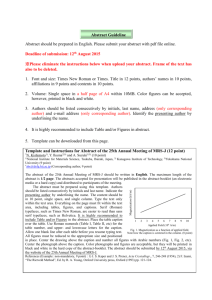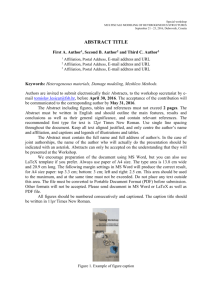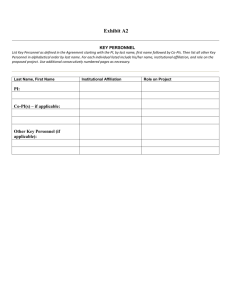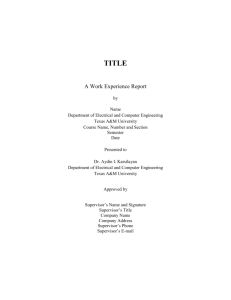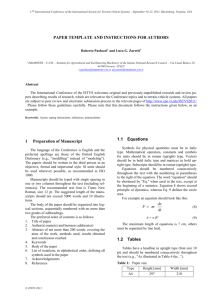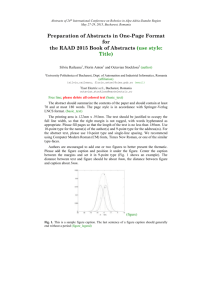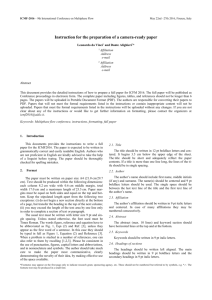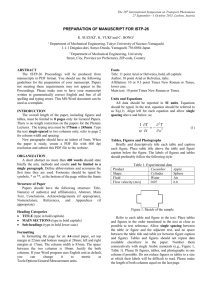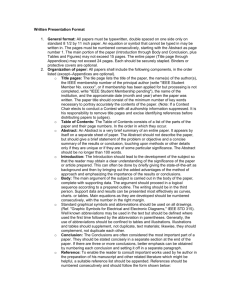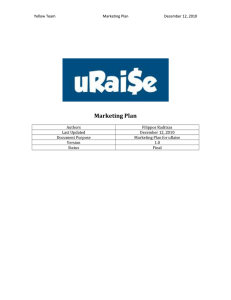MS Word
advertisement
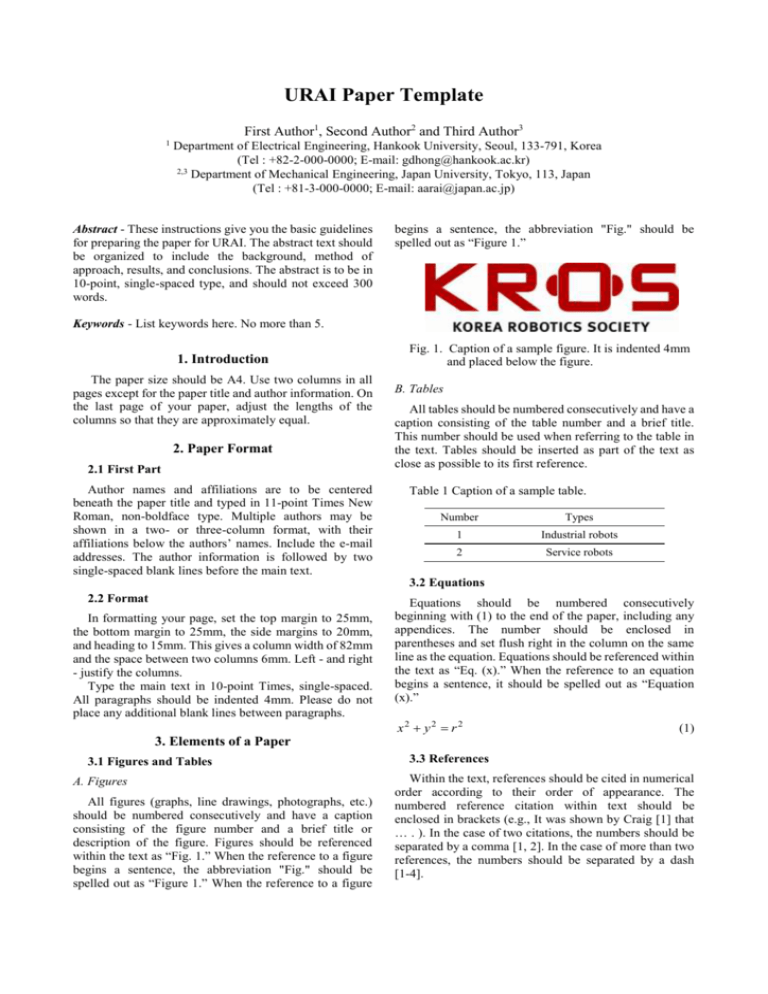
URAI Paper Template First Author1, Second Author2 and Third Author3 1 Department of Electrical Engineering, Hankook University, Seoul, 133-791, Korea (Tel : +82-2-000-0000; E-mail: gdhong@hankook.ac.kr) 2,3 Department of Mechanical Engineering, Japan University, Tokyo, 113, Japan (Tel : +81-3-000-0000; E-mail: aarai@japan.ac.jp) Abstract - These instructions give you the basic guidelines for preparing the paper for URAI. The abstract text should be organized to include the background, method of approach, results, and conclusions. The abstract is to be in 10-point, single-spaced type, and should not exceed 300 words. begins a sentence, the abbreviation "Fig." should be spelled out as “Figure 1.” Keywords - List keywords here. No more than 5. 1. Introduction The paper size should be A4. Use two columns in all pages except for the paper title and author information. On the last page of your paper, adjust the lengths of the columns so that they are approximately equal. 2. Paper Format 2.1 First Part Author names and affiliations are to be centered beneath the paper title and typed in 11-point Times New Roman, non-boldface type. Multiple authors may be shown in a two- or three-column format, with their affiliations below the authors’ names. Include the e-mail addresses. The author information is followed by two single-spaced blank lines before the main text. Fig. 1. Caption of a sample figure. It is indented 4mm and placed below the figure. B. Tables All tables should be numbered consecutively and have a caption consisting of the table number and a brief title. This number should be used when referring to the table in the text. Tables should be inserted as part of the text as close as possible to its first reference. Table 1 Caption of a sample table. Number Types 1 Industrial robots 2 Service robots 3.2 Equations 2.2 Format In formatting your page, set the top margin to 25mm, the bottom margin to 25mm, the side margins to 20mm, and heading to 15mm. This gives a column width of 82mm and the space between two columns 6mm. Left - and right - justify the columns. Type the main text in 10-point Times, single-spaced. All paragraphs should be indented 4mm. Please do not place any additional blank lines between paragraphs. Equations should be numbered consecutively beginning with (1) to the end of the paper, including any appendices. The number should be enclosed in parentheses and set flush right in the column on the same line as the equation. Equations should be referenced within the text as “Eq. (x).” When the reference to an equation begins a sentence, it should be spelled out as “Equation (x).” x2 y2 r 2 (1) 3. Elements of a Paper 3.1 Figures and Tables A. Figures All figures (graphs, line drawings, photographs, etc.) should be numbered consecutively and have a caption consisting of the figure number and a brief title or description of the figure. Figures should be referenced within the text as “Fig. 1.” When the reference to a figure begins a sentence, the abbreviation "Fig." should be spelled out as “Figure 1.” When the reference to a figure 3.3 References Within the text, references should be cited in numerical order according to their order of appearance. The numbered reference citation within text should be enclosed in brackets (e.g., It was shown by Craig [1] that … . ). In the case of two citations, the numbers should be separated by a comma [1, 2]. In the case of more than two references, the numbers should be separated by a dash [1-4]. References should be listed together at the end of the paper in numerical order according to the sequence of citations within the text. Refer to some references at the end of this template for correct format. Acknowledgement Acknowledgments may be made to individuals or institutions not mentioned elsewhere in the work who have made an important contribution. References [1] G. D. Hong, T. Nakamura and K. G. Kim, “Article Title,” Journal Title, Vol. 10, No. 6, pp. 1-10, 2006. [2] A. C. Smith, Introduction to Robotics, Publisher, New York, 2006.
